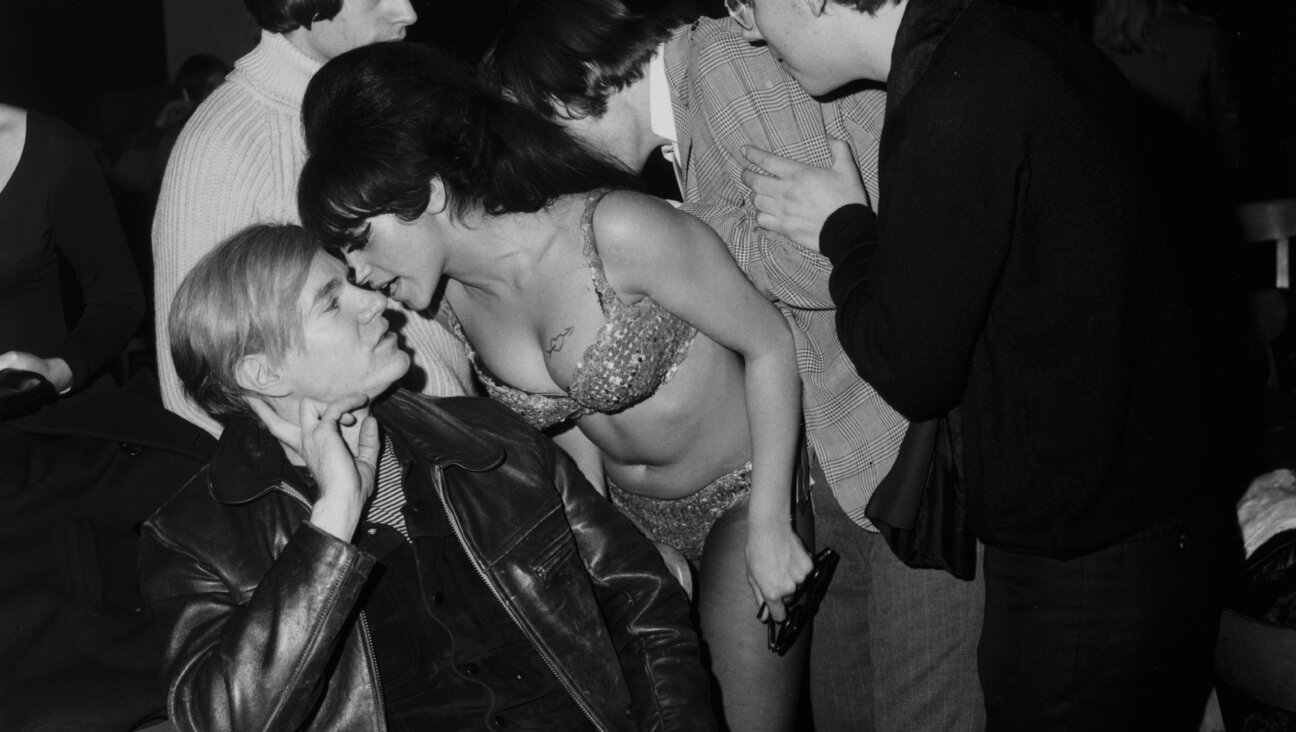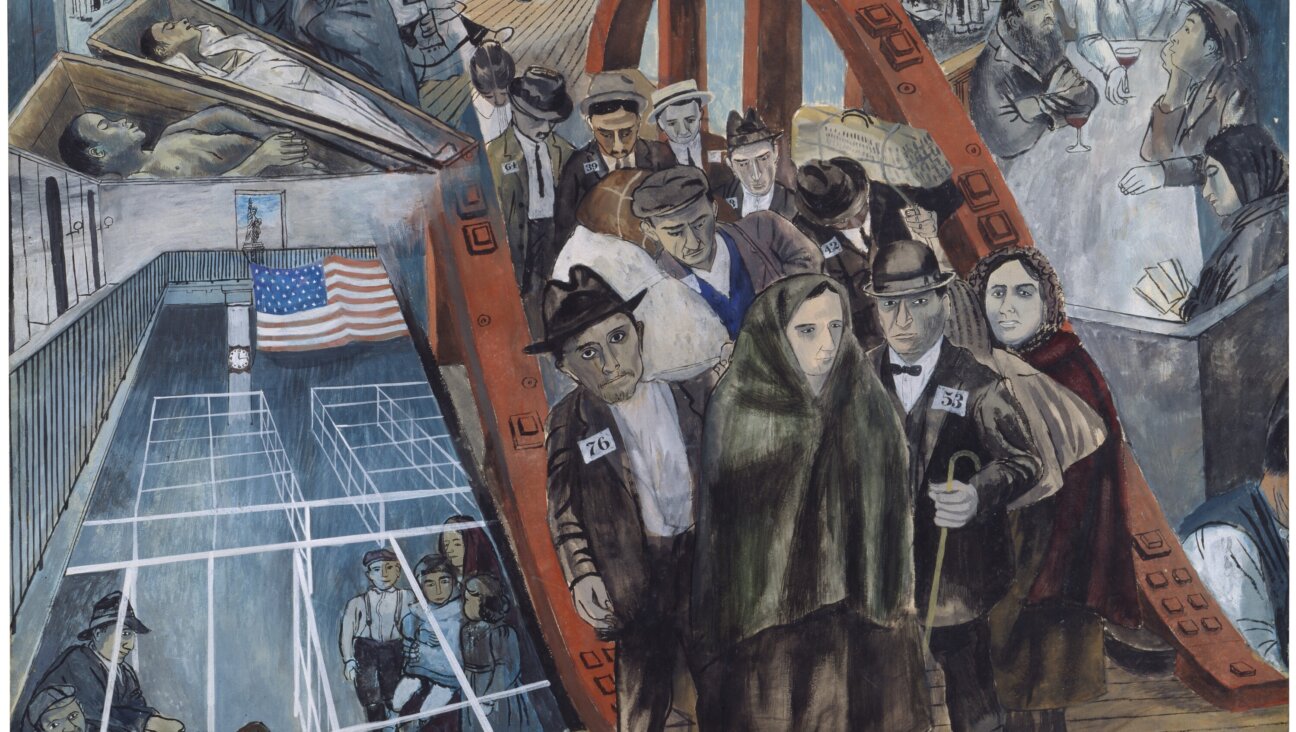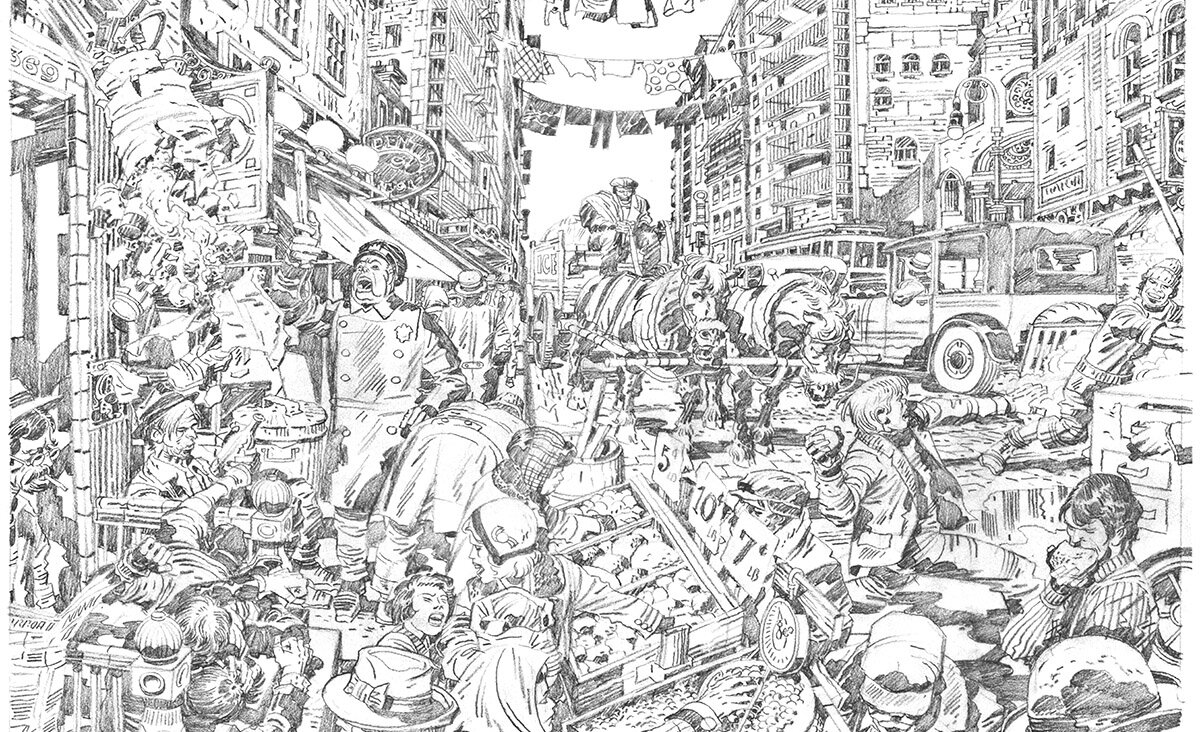A Comic Tells The Story Of Henry Ford And A Jewish Math Whiz

American automobile engineer and manufacturer Henry Ford (1863 – 1947) in his first car, built in 1896, Dearborn, Michigan. (Photo by Hulton Archive/Getty Images) Image by Getty Images/Hulton Archive/Stringer
Thanks in no small part to J.D. Salinger’s “Franny and Zooey,” radio show whiz kids have long held a special spot in the Jewish-American imagination. But it may surprise some that the real world purpose of “Quiz Kids,” a 1940s trivia show, was to promote Jewish intelligence during a time when Jewish lives were most at risk. While it’s hard to gauge the propaganda program’s success, a new comic by Eisner-winning writer and artist Michael Kupperman in “The Nib” suggests it may have worked on an unlikely mark: Henry Ford.
The 26-panel comic tells the story of Kupperman’s father (and subject of his latest book), Joel, a math prodigy on “Quiz Kids.” While the adult Joel always “encouraged — needed, even — his family to see his trivia career as trivial itself,” Kupperman took a renewed interest in his father’s time on the radio when he suggested the show was “manufactured,” and that its creators “wanted a Jewish child.”
Digging into archives, Kupperman learned that “Quiz Kids” producer, Louis G. Cowan (born Cohen) was one of the people behind the U.S.’s propaganda efforts at home and abroad. Kupperman believes Cowan created “Quiz Kids” for NBC in 1940, and casted mostly Jews, in an effort to shift public opinion and raise awareness of the plight of Europe’s Jewry. The program even sent its pint-sized stars on tour to sell war bonds.
On one such trip to Dearborn, Michigan in 1943, the cast of “Quiz Kids” was invited to meet with Henry Ford. By then, the auto giant, who, in publishing “The Protocols of the Elders of Zion” may have done more than anyone prominent American to elevate anti-Semitic sentiment at home, had publicly renounced his old positions.
Still, Joel’s mother made him stay at the hotel, saying he was “sick” to protect him from Ford. But for some reason, the carmarker made a trip the next day to the hotel to visit Kupperman’s father. “Why was Ford so curious to see this smart, Jewish kid?” Kupperman wonders. “Did he want to see if he could recognize him as human?”
The comic makes an interesting, if open-ended, question of Ford’s redemption, but leaves off on a more compelling note of the consequences of Cowan’s experiment. “My father was put on display, asked to perform, and pushed around during his whole childhood,” Kupperman writes. “As an adult he left that identity behind… including his religion.”
As a result, Kupperman didn’t grow up with much of a connection to his Judaism. But, as the final frames tell us, the current political climate is making Kupperman more aware of the importance of his father’s story, and critical of his reluctance to share it.
We can be grateful to Michael Kupperman for sharing it with us.
PJ Grisar is the Forward’s culture intern
























